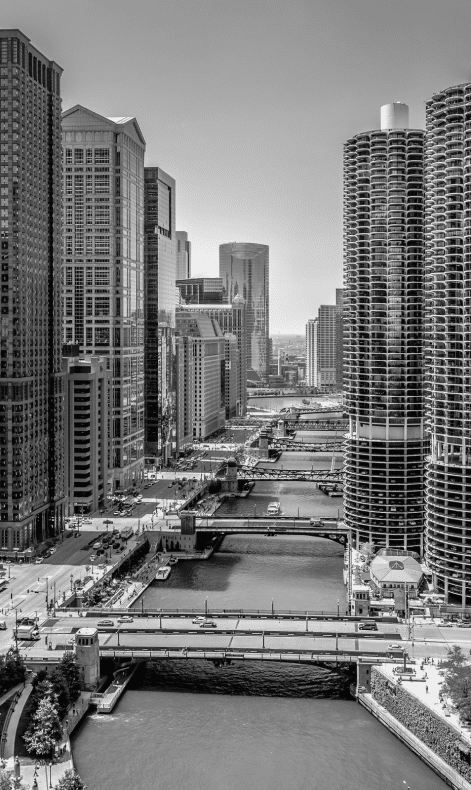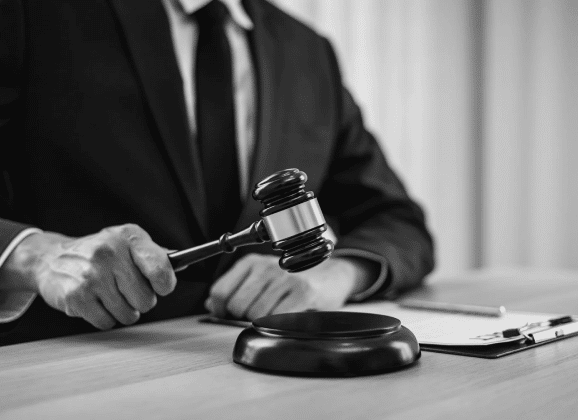Chicago Police Brutality and Civil Rights Lawyer
Unfortunately, police brutality is all too common in Chicago. Not only does police violence cause life-altering injuries and mental suffering, but it can also have deadly consequences. If you or someone you know has been the victim of police brutality, an experienced Chicago police brutality lawyer at Police Brutality Center can help you seek justice and fight for the compensation you need and deserve.
Were you or a loved one a victim of police brutality?
Attorneys that work with Police Brutality Center may be able to assist you.
"*" indicates required fields
Content Last Updated: November 14, 2025
Were you or a loved one a victim of police brutality?
Abuse inflicted by the police or other law enforcement officers can have a lifelong impact on victims. Physical harm, humiliation, and even false statements all take their toll—both physically and emotionally.
If you believe you were the victim of police brutality or misconduct, you have rights. At Police Brutality Center, we encourage victims and their families to contact our Chicago police brutality lawyers for help seeking justice.
Why Work With A Chicago Police Brutality Lawyer?
A police brutality lawyer in Chicago can help level the playing field between you and the police department. Lawyers provide support by collecting evidence, negotiating settlements, advocating in court, and pursuing the strongest possible outcome for your case.
Police Brutality Center recognizes the emotional and legal challenges victims of police misconduct face. We connect families with attorneys experienced in Illinois law who are dedicated to seeking justice and holding accountable those responsible for their loved ones’ injuries.
How To File a Civil Rights Claim in Chicago
If you believe your civil rights have been violated in Chicago, Police Brutality Center is ready to support you. Knowing what to expect during the claims process can help you feel empowered and better prepared for each step.
Initiating the Complaint Process
The first step is filing a complaint with the Chicago Police Department. According to the CPD’s official guidelines, you can submit your complaint via email, by calling a toll-free number, or in person. This initial complaint triggers an internal investigation of the officer or officers involved.
Engaging a Police Brutality Lawyer in Chicago
Civil rights laws are complex. A police brutality lawyer in Chicago can explain how the relevant statutes and rules apply to your case so that you understand your rights and options. They can also collect evidence, interview witnesses, help you meet important filing deadlines, communicate with the department on your behalf, and advocate for you at the negotiation table and, if necessary, in the courtroom.
Legal Proceedings
Once a complaint is filed and an internal investigation is underway, you can file a civil rights lawsuit. This is distinct from the department complaint and seeks financial compensation for the misconduct you’ve experienced. In Illinois, the statute of limitations for filing such a claim is generally two years from the date of the incident.

Notable Chicago Police Misconduct Lawsuit Settlements
Police brutality undermines public trust and can leave victims and families suffering lasting consequences. Through police misconduct claims, they can seek accountability and financial recovery. Below are a few notable police misconduct lawsuit settlements from Chicago:
- $90 million was paid by the city of Chicago to settle 176 wrongful conviction lawsuits linked to former police Sgt. Ronald Watts and his team. Fox 32 Chicago reported that almost 200 individuals spent a combined total of over 200 years in prison because of alleged false arrests, fabricated evidence, and other misconduct. The lawsuits mark one of the city’s largest police misconduct scandals.
- $491.7 million was paid by the city of Chicago between 2019 and 2024 to settle lawsuits accusing more than 1,600 police officers of misconduct, according to a WTTW report.
- $7 million each was paid to Corey Batchelor and Kevin Bailey by the city of Chicago to compensate them for their wrongful convictions. In 1989, both men claimed Chicago Police Commander Jon Burge tortured them into confessing to the murder of Lula Mae Wood. They were exonerated in 2018 after nearly three decades of injustice.
Chicago Police Brutality Statistics
Unfortunately, hundreds of people are harmed by police brutality and misconduct in Chicago yearly. Consider these statistics from the University of Illinois Chicago:
- Each year, law enforcement officers kill an average of 10 people.
- Hospitals treat approximately 200 people annually for injuries caused by law enforcement.
- The City of Chicago has paid over $500 million to settle lawsuits over police misconduct and civil rights violations.
Nationwide data gathered in 2022 illustrates the true impact of police brutality and misconduct cases:
- In 2022, 1,201 people lost their lives due to police action.
- Of the people killed, 97% died in a police shooting. Other deaths were caused by police vehicles, physical force, and tasers.
- Only 12 officers were charged in the cases, representing just 1% of the police killings.
- Officers faced criminal charges for less than 3% of the killings.
Police brutality also imposes a financial burden on Chicago and its residents. According to a recent WTTW News analysis, Chicago taxpayers spent approximately $280 million to resolve police misconduct lawsuits from 2019 to 2023. That staggering amount reflects not just the scale of the issue but also the financial implications for the city and its residents.
History of Police Misconduct in Chicago
Police brutality has been an ongoing issue in Chicago for decades. The pattern of police misconduct, including excessive force, wrongful arrests, and systemic racial bias, has disproportionately impacted minorities and their communities.
Academic research has shown that Chicago police officers have a long history of harming and killing citizens, dating back to the late 1800s, especially Black Chicagoans. This research found that Black residents accounted for a disproportionately high number of police killings in Chicago between 1910 and 1920.
Notable Police Misconduct Cases
Chicago’s history of police misconduct includes the following landmark cases:
In 2014, 17-year-old Laquan McDonald was shot 16 times by Chicago Police Officer Jason Van Dyke, leading to widespread protests and calls for reform. The officer was later found guilty of second-degree murder.
Rekia Boyd, a 22-year-old woman, was shot and killed by off-duty Officer Dante Servin in 2012. Servin was acquitted of involuntary manslaughter, igniting public outrage over perceived injustices.
Perhaps one of the most egregious examples involves Jon Burge, a former Chicago Police Department detective implicated in the torture of over 100 suspects between the 1970s and the early 1990s to elicit confessions. Examples of the torture he inflicted on suspects included suffocation, electric shock, and burning.
Black Panther leader Fred Hampton was shot and killed during a 1969 police raid. While the police described it as a “shootout,” evidence later revealed Hampton was likely drugged and shot while sleeping, making this a disturbing case of extreme police violence.
These cases serve as a reminder of Chicago’s tragic history of police misconduct, highlighting the pressing need for reform and justice.
Police Misconduct Laws in Chicago
Several laws and regulations have been enacted to curb police brutality and misconduct in Chicago and throughout Illinois. The laws aim to ensure accountability, transparency, and justice.
Illinois Uniform Police Officers' Disciplinary Act
This law outlines the procedures for filing a complaint against police officers and establishes the rights of officers accused of misconduct during the subsequent investigations.
Illinois Police and Community Relations Improvement Act
This state law requires law enforcement agencies in Illinois to collect and report data on the racial and ethnic composition of all individuals stopped or searched. It was enacted to monitor and prevent racial profiling.
Use of Force Guidelines
The Chicago Police Department has guidelines that set forth the conditions under which officers can use force, including deadly force. The department’s directives are available for public review and align with federal guidelines.
Federal Civil Rights Act of 1871
Individuals deprived of their civil rights can sue the government under the Civil Rights Act of 1871, 42 U.S.C. § 1983, to seek damages.
What Is the Statute of Limitations for Civil Rights Cases in Illinois?
If you wish to file a civil rights violation lawsuit in Illinois, you have two years from the incident date. You can lose the right to seek justice if you miss the deadline.

Understand Your Rights With Help From Police Brutality Center
At the Police Brutality Center, we are committed to helping victims seek justice. The first step is to contact us and get legal help. We are prepared to advocate for you and protect your rights.
